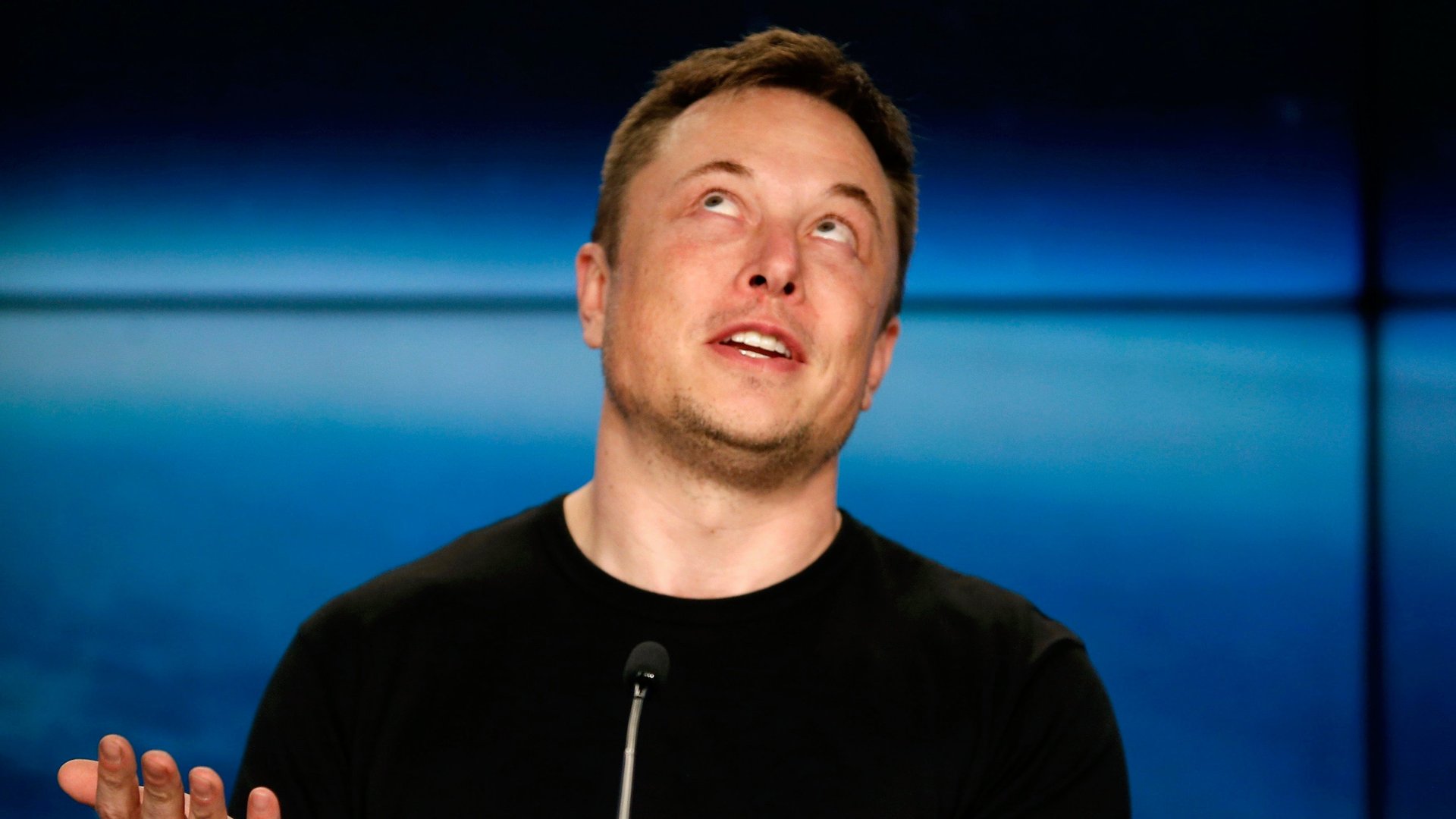Elon Musk’s lawyers say you just can’t take him seriously
Elon Musk has of late developed a reputation as an emotionally erratic mogul with ambitious plans and a quick draw on Twitter. He uses social media often and not so thoughtfully, which sometimes gets him in trouble. This summer, for instance, he called Vernon Unsworth—a British diver involved in the Thai cave rescue of 12 trapped children—”pedo guy.”


Elon Musk has of late developed a reputation as an emotionally erratic mogul with ambitious plans and a quick draw on Twitter. He uses social media often and not so thoughtfully, which sometimes gets him in trouble. This summer, for instance, he called Vernon Unsworth—a British diver involved in the Thai cave rescue of 12 trapped children—”pedo guy.”
Musk and engineers from his companies contributed a submarine to the rescue efforts. It ultimately wasn’t used to save the kids and Unsworth called Musk’s move “a PR stunt” in a CNN interview. Musk fired back his insulting tweet, which he later deleted. He then repeated the claim that Unsworth was a pedophile, as evidenced by his attachment to Thailand, where—Musk implied—he went to have sex with children.
Unsworth sued Musk in federal court in California, accusing him of defamation. On Dec. 26, Musk’s lawyers filed a motion to dismiss, claiming their client’s tweets can’t be taken seriously. Basically, they argue that for Unsworth’s case to go forward, he must show that Musk had facts to back the insult, actual information that would lead people to believe the plaintiff was a pedophile. And, the attorneys say, it was obvious that Musk did not have any basis for his claims and was just spouting off, which they contend was perfectly fine because Unsworth “gratuitously attacked” Musk first.
Musk’s attorneys say that the internet—and Twitter in particular—is a place where people just say whatever they want, in order to experience “emotional catharsis.” Tweets mean nothing, they contend. Posts are obviously just opinions and no one believes them. “Courts have consistently held imaginative insults—no matter how repugnant—are non-actionable as long as a reasonable reader would not believe them to be backed by objective fact,” the motion states.
Because Musk was responding to Unsworth’s initial slight, it was clear that he was just having “a war of words,” his attorneys argue. Musk merely “fought fire with fire.” Insults, they point out, are protected by the First Amendment right to free speech. “The more colorful the invective, the more likely the reader is to understand that it is opinion,” they write. Moreover, because Twitter “breeds informality and incivility…participants expect to read opinions, not facts.”
This argument of course ignores the fact that Musk’s tweets that same season were taken very seriously by Tesla investors, financial markets, and the Securities and Exchange Commission. On Aug. 7, Musk tweeted that he could take Tesla private at $420 per share, that funding for the transaction had been secured, and that the only remaining uncertainty was a shareholder vote. None of this was the case. In September, Musk settled an SEC fraud complaint for $40 million, without admitting or denying the allegations, and agreed to relinquish his title as CEO of Tesla.
He has yet to give up Twitter, however, a platform he professes to “love.” During an hour-long interview with Kara Swisher from Recode published Nov. 2, Musk discussed his attachment: “I guess I sometimes use Twitter to express myself…Some people use their hair to express themselves. I use Twitter.”